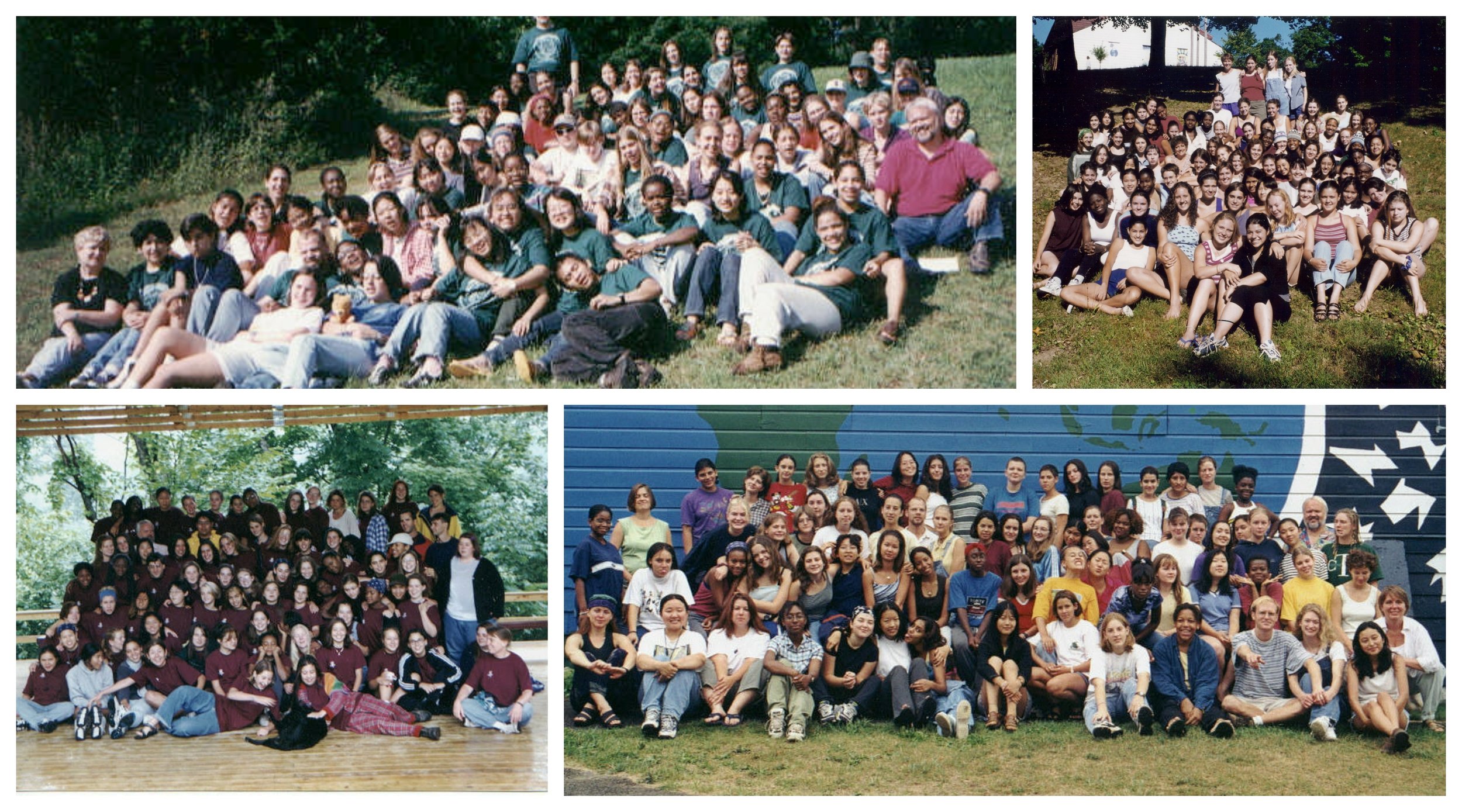By: Mary Murphy
When I became Director of CRS/Clinton in 1996, the girl’s Camp had been open for 6 years, and I was the 4th director. The women of the earlier years had established tent names, the welcome song, and many wonderful girls’-camp-specific traditions, but the program was often still judged by boys’ camp standards, and we generally felt like the younger sibling who couldn’t measure up to the big brother. Nevertheless, there were many, many allies among the alumni and board members who stood with us through our young years. Over my six years, I saw the program “grow up” and, while maintaining the important CRS foundations, became its own camp. We were no longer criticized for playing jazz or world music instead of classical on Sundays, we proved ourselves on hiking trips and productions, and older alumni stopped saying things like, “OK, I visited. Now I’m going back to the real camp.”
I personally learned a lot from my time at CRS and “grew up” as a professional myself. I learned to stand up more clearly and forcefully for what I believe in, and I learned that sometimes the greatest strength lies in quietly supporting from the background.
Perhaps the most important lesson, though, lies in the complexity of navigating and negotiating through issues of gender equality. I considered myself a feminist (still do) and argued for equal rights for women with anyone who wanted to debate. But a funny thing happened when I came to CRS. I found it easy to fight and declare that women are as good as men and that they deserve to have the same rights and privileges; but what if the men who surround you already believe that and stand with you, but they don’t quite get a million little ways that women are discounted in meetings and in the workplace? What if they say they want more women on the board, but don’t know how to recruit or keep them there? What if they don’t get that their meetings are so male-cultured that every woman in the room feels like an outsider?
My mother had a saying that “the road to hell is paved with good intentions.” But good intentions are a very good place to start. I learned that arguing and fighting are not the only tools, and sometimes they are exactly the WRONG tools. I needed to do more than be angry at the injustices of the world and protest them. At CRS, I was called to join with my brothers, to hone my language, and to explain and give loving feedback to intelligent, kind, and dear men, who sometimes were not so sensitive to women in a meeting and had no clue what male culture meant. It is one thing to fight a revolution; it is another, equally important, thing to shift a culture. And that is what we are doing.
Now we are celebrating 30 years of the girls’ program at CRS. Both the boys’ and girls’ programs are currently happening at CRS/Clinton (formerly, the girls’ camp) and most of the same staff run both programs. There are no longer critical comparisons between the two programs, and they are seen as two parts of a whole. The Foundation has a female alumna as Executive Director. The board has worked diligently for years to recruit and keep women on the board of directors, and is committed to listening and learning how to be more inclusive. The good intentions were inspirations of good action, and it is paying off.
Culturally, the “me too” movement has stirred the consciousness of men and women around the country to recognize and say no to abuse and violence. It is almost as if the culture woke up a bit. As we do this waking up, we are seeing how much still needs to be changed, but we are also seeing that we have allies in many places.
My experiences at CRS/LAJF have taught me to treasure those allies and the importance of learning how best to love, support, and nurture those who may have good intentions, but are not as far down the path as some others. Now that we have their attention and intention, how do we nurture them along their paths, as we nurture ourselves and each other along ours? The next steps for women, I think, lie here. And what better place than CRS/ LAJF to do this work: to learn to have deep dialogue around emotional issues; to have patience and love for another as if he or she were a brother or sister; to practice patience and to show respect, even when we are hurt and angry.
I have found CRS/LAJF to be the perfect place to hone these skills, because I have brothers and sisters who will engage with patience and care, even when I am trying – with less grace than I’d like – to understand a complex issue or to explain my feelings. None of this is easy, but the more we work on these conversations, the better we will be – and the more effective we will be to make change.
In this remarkable celebratory year of Camp Rising Sun, I encourage the women of CRS to come back to celebrate, to touch base with other incredible women and (men!), and to see how far we have come. You may find strength, courage, and inspiration. I have.


